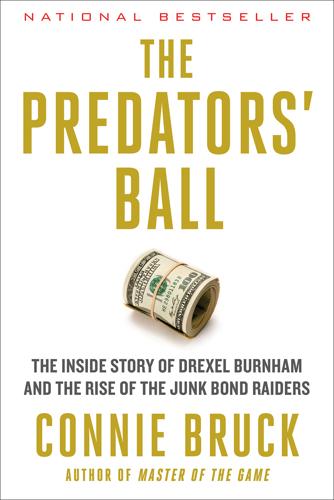
The Predators' Ball: The Inside Story of Drexel Burnham and the Rise of the JunkBond Raiders
by
Connie Bruck
Published 1 Jun 1989
It must have not only excited but tickled the fancy of Milken, an amateur magician who occasionally does tricks for his friends, to be able to wave this particular wand. The honored guests of this conference, therefore, were the takeover artists and their biggest backers—men like T. Boone Pickens, Carl Icahn, Irwin Jacobs, Sir James Goldsmith, Oscar Wyatt, Saul Steinberg, Ivan Boesky, Carl Lindner, the Belzbergs—and lesser lights about to shine, such as Nelson Peltz, Ronald Perelman, William Farley. The names tend to meld into a kind of raiders’ litany, but they are not all the same. For Milken, they would have separate roles during the coming months, performing discrete functions in a vast, interlocking machine of which he alone would know all the parts.
…
In addition to Drexel’s female employees, there were a number of extremely attractive young women at this dinner—so good-looking, in fact, that one takeover lawyer, George Katz of New York’s Wachtell, Lipton, Rosen and Katz, renowned for his naiveté, remarked to a companion, “I’ve got to hand it to these guys—I’ve never seen so many beautiful wives!” In fact few if any wives attended this dinner. An assessment closer to the mark was made by arbitrageur Martin Weinstein, who, noting that Irwin Jacobs had been deep in conversation for hours with one of these women at the far end of the room, commented to a friend, “Tell Irwin he doesn’t have to work so hard. She’s already paid for.” According to Julian Schroeder, a former corporate finance partner at Drexel, the “girls” have been a staple of the conference since the early years.
…
It was a glorified road show for the buyers and for the scores of companies that made presentations, many of whom would soon be doing junk-bond offerings. It was a reunion for Milken’s high-rollers, whose camaraderie, if not collusion, he encouraged. One Drexel lawyer later recalled having seen Ivan Boesky, Carl Icahn, Carl Lindner and Irwin Jacobs huddled in a corner. “Anything could have been happening there,” he remarked with a laugh. It was a good time. Bungalow 8 would not soon be forgotten, and client loyalty gets forged in sundry ways. And it launched Milken’s now full-blown tour de force. Within the first two weeks of April 1985, hard on the heels of the Predators’ Ball, five more Drexel clients—in addition to Triangle Industries—would make bids for companies, all backed by Milken’s junk bonds.
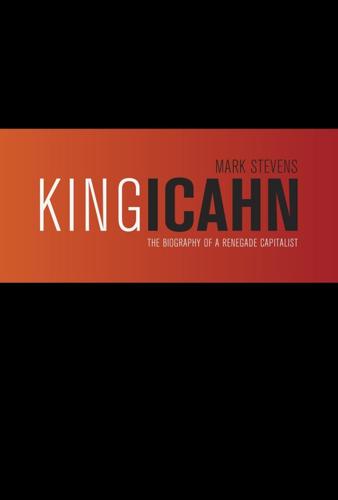
King Icahn: The Biography of a Renegade Capitalist
by
Mark Stevens
Published 31 May 1993
Carl is always so into himself, he doesn’t think about helping someone else. He won’t give you ice in the winter.” The Boesky block gave Carl greater leverage in his takeover bid and, as a backup, provided a greater profit opportunity should another raider or corporate suitor make a run at Phillips. At this point, Minneapolis-based takeover artist Irwin Jacobs (aka “Irv the Liquidator”) had a stake in Phillips and Pennzoil was known to be sniffing around. If either one or others waiting in the wings, made a move on the company, the stock price would soar, giving Icahn a profitable exit. He knew, though, that he was maneuvering the treacherous waters and that the circumstances could change rapidly.
…
Visitors would whisper that the company reminded them of the army, but those of us who were here long enough to look beneath the surface knew that it was much worse. “That Icahn would want any part of this place shocked us.” But to Icahn and a flock of raiders, including Robert Holmes á Court, Boone Pickens and Irwin Jacobs, then circling the company like so many vultures, how USX conducted its business was irrelevant. All that mattered were the assets, steel and energy. Icahn dreamed of spinning off steel and allowing the energy unit to reach its true high-water mark. Although Icahn was not the first or the only observer to see the potential inherent in such a spin off, he alone would make it a cause célèbre.
…
-Joe Corr, former TWA president As the Roaring Eighties faded into the history books, the infamous raiders of the bygone decade receded from the headlines, opting for less exposure and more traditional business pursuits. Saul Steinberg turned his attention back to his Reliance Insurance holding and to the Park Avenue social whirlwind embraced by his wife Gayfryd. Irwin Jacobs focused on the Minneapolis-based yachting business and Sir James Goldsmith, once the most flamboyant of raiders, took his fortune and virtually disappeared. As much as Carl Icahn might have liked to perform a disappearing act of his own, transforming himself from a high-profile raider into a behind-the-scenes investor in troubled businesses, the continuing saga of beleaguered TWA kept him in the spotlight.
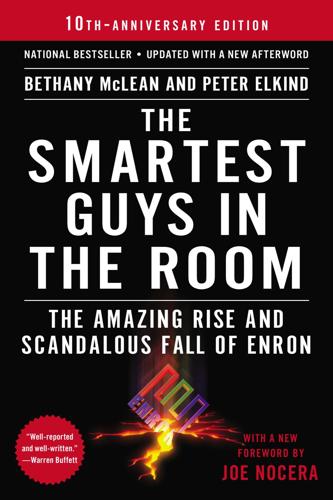
The Smartest Guys in the Room
by
Bethany McLean
Published 25 Nov 2013
He purchased a company jet, bought a corporate ranch in Colorado, and closed the fifteenth-floor corporate dining room to all but a few top executives, who were served by white-gloved waiters. Worst of all, Segnar made a string of bad diversification investments. InterNorth was also powerfully motivated by the fact that Irwin Jacobs, a corporate raider, was buying up its shares. Jacobs’s looming presence sent Segnar into a panic. He persuaded the board that the only way to make InterNorth “sharkproof” was to make the company bigger and dramatically increase its debt. Buying HNG would accomplish both goals. Lay and Segnar turned over negotiations to Wing and Rocco LoChiano, Segnar’s top deputy.
…
From a business standpoint, HNG InterNorth, as it was called, seemed an elegant combination: with 37,500 miles of pipeline, the new $12 billion company would have the largest gas-distribution system in the country, running from border to border, coast to coast. It would have access to the three fastest growing gas markets: California, Texas, and Florida. And it had some $5 billion in debt, surely more than enough to put it safely beyond the reach of raiders like Irwin Jacobs. As for Ken Lay, he wound up with a personal windfall: a $3 million profit from converting his stock and options in the wake of the merger. Mergers that sound good on paper often wind up facing a far harsher reality. Such was the case with HNG InterNorth. There were two fundamental issues.
…
• • • There was a second issue looming, of far more consequence than the question of where to put the company’s headquarters. It was this: all the good things Ken Lay assumed would happen once the HNG-InterNorth merger took place simply weren’t happening. For the moment, Lay’s get big fast strategy was only bringing bigger problems. Irwin Jacobs? Even though the new company was now drowning in debt, the raider and an investor group allied with him still wouldn’t go away. Lay wound up having to shell out about $350 million—a modest premium to the market price—to buy out the group’s 16.5 percent stake. There wasn’t enough cash in the corporate coffers to pay the greenmail, so Lay had to tap the company’s pension plan for the money.
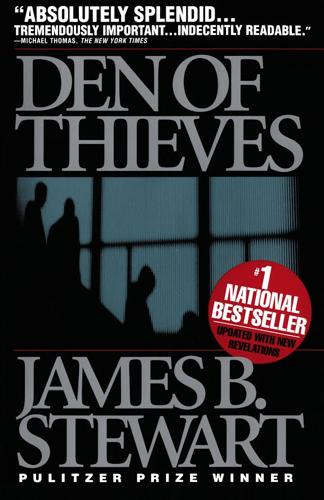
Den of Thieves
by
James B. Stewart
Published 14 Oct 1991
He came to know virtually everything about the lives of his clients, including their problems with their wives and mistresses. He wasn't judgmental. On the contrary, he shared many of their appetites. Among Drexel's important clients, Engel was given credit for landing Ronald Perelman, Nelson Peltz, Jerome Kohlberg, Gerald Tsai, Irwin Jacobs, and the Haft and Pritzker families. Engel found a kindred spirit in Milken. They referred facetiously to the wealthy establishment as "the white guys." They didn't care much about them. For Drexel, they wanted clients like Herb Haft, a man whose blow-dried, cone-shaped snow white hair made him look like a character from "Star Trek."
…
That year's guest list was practically a who's-who of self-made multimillionaires of the 80s: Merv Adelson, Norman Alexander, Henry Kravis, George Roberts, Boone Pickens, John Kluge, Fred Carr, Marvin Davis, Barry Diller, William Farley, Harold Geneen, Rupert Murdoch, Steve Ross, Ron Perelman, Peter Grace, Sam Heyman, Carl Icahn, Ralph Ingersoll, Irwin Jacobs, William McGowan, David Mahoney, Martin Davis, John Malone, Peter Ueberroth, David Murdock, Jay and Robert Pritzker, Samuel and Mark Belzberg, Carl Lindner, Nelson Peltz, Saul Steinberg, Craig McCaw, Frank Lorenzo, Peter May, Steve Wynn, James Wolfensohn, Oscar Wyatt, Gerald Tsai, Roger Stone, Harold Simmons, Sir James Goldsmith, Mel Simon, Henry Gluck, Ray Irani, Peter Magowan, Alan Bond, Ted Turner, Robert Maxwell, Kirk Kerkorian.
…
Nelson Peltz, head of Triangle Industries, acquired National Can and then bought American Can from Primerica. He sold American National Can to Pechiney, the French packaging company. Gerald Tsai was chairman of Primerica, which he reshaped into a financial services concern which owns Smith Barney, the brokerage firm. Irwin Jacobs is a corporate raider based in Minneapolis. The Hafts became corporate raiders, launching an unsuccessful bid for Safeway Stores. The Pritzker family owns Hyatt Hotels Corporation and invests in numerous other ventures. page 104 Carr has denied being part of any scheme to free Posner from the standstill agreement.
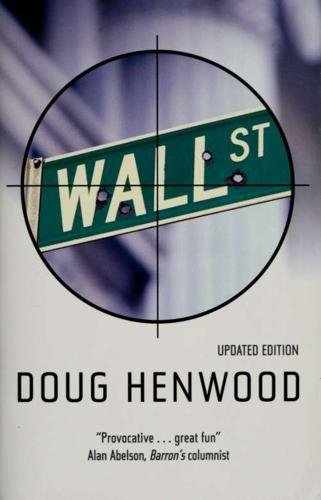
Wall Street: How It Works And for Whom
by
Doug Henwood
Published 30 Aug 1998
That the inefficiencies were in fact just as we had seen them in theory, but the markets took a while to adjust. That adjustment is still taking place." GOVERNANCE Jensen especially celebrated LBOs engineered by boutiques like Kohlberg Kravis Roberts (KKR) and Clayton & Dubalier; "entrepreneurs" like Carl Icahn, Ronald Perelman, Irwin Jacobs, and Warren Buffett; merchant banking arms of Morgan Stanley and Lazard Freres; and families like the Pritzkers and Bronfmans. These fine people — the forgotten stars of the largely forgotten 1980s — should be trusted to run corporate America like a stock portfolio, from their thinly staffed (20 to 60 people) home offices, transforming the industrial cities of yesteryear into ghost towns.
…
These fine people — the forgotten stars of the largely forgotten 1980s — should be trusted to run corporate America like a stock portfolio, from their thinly staffed (20 to 60 people) home offices, transforming the industrial cities of yesteryear into ghost towns. With all its vast increases in data, talent, and technology. Wall Street can allocate capital among competing businesses and monitor and discipline management more effectively than the CEO and headquarters staff of the typical diversified company. KKR's New York offices and Irwin Jacobs' Minneapolis base are direct substitutes for corporate headquarters in Akron and Peoria. The ideal arrangement, the LBO Association, was a venture among three "constituencies": the sponsoring boutique; senior management with a large equity stake; and the big institutional investors who fund the deals.
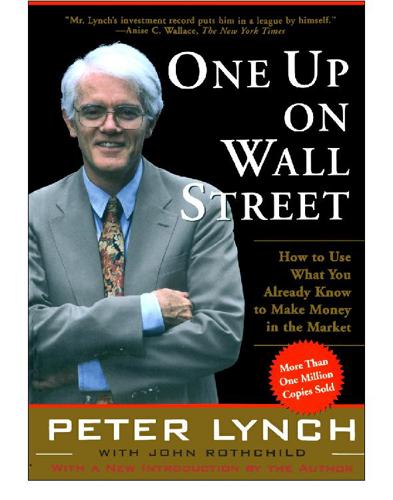
One Up on Wall Street
by
Peter Lynch
Published 11 May 2012
Now I’m ready to believe that anything could be taken over, including the larger continents.) With so many raiders around, it’s harder for the amateur to find a good asset stock, but it’s a cinch to know when to sell. You don’t sell until the Bass brothers show up, and if it’s not the Bass brothers, then it’s certain to be Steinberg, Icahn, the Belzbergs, the Pritzkers, Irwin Jacobs, Sir James Goldsmith, Donald Trump, Boone Pickens, or maybe even Merv Griffin. After that, there could be a takeover, a bidding war, or a leveraged buyout to double, triple or quadruple the stock price. Other sell signs: • Although the shares sell at a discount to real market value, management has announced it will issue 10 percent more shares to help finance a diversification program
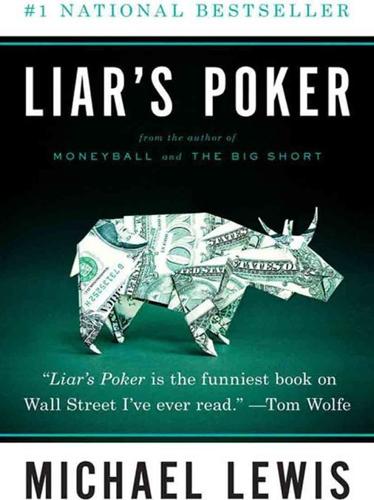
Liar's Poker
by
Michael Lewis
Published 1 Jan 1989
To raid corporations, however, Milken needed a few hit men. The new and exciting job of invading corporate boardrooms appealed mainly to men of modest experience in business and a great deal of interest in becoming rich. Milken funded the dreams of every corporate raider of note: Ronald Perelman, Boone Pickens, Carl Icahn, Mar-vin Davis, Irwin Jacobs, Sir James Goldsmith, Nelson Peltz, Samuel Heyman, Saul Steinberg, and Asher Edelman. "If you don't inherit it, you have to borrow it," says one. Most sold junk bonds through Drexel to raise money to storm such hitherto unassailable fortresses as Revlon, Phillips Petroleum, Unocal, TWA, Disney, AFC, Crown Zellerbach, National Can, and Union Carbide.
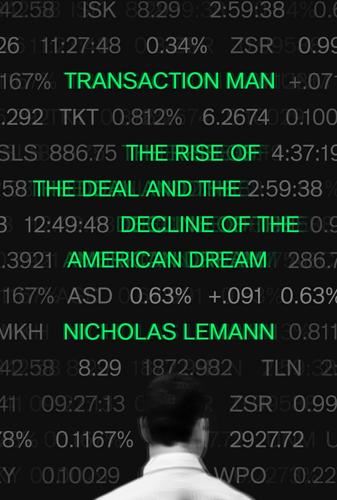
Transaction Man: The Rise of the Deal and the Decline of the American Dream
by
Nicholas Lemann
Published 9 Sep 2019
Within a few years, he had become the leading public advocate and justifier of a number of new techniques in the financial world that suddenly became pervasive: a large increase in mergers and acquisitions, including hostile ones; the development of the junk-bond market, whose high-risk, high-return instruments often financed these activities; enormous raises in the compensation of corporate chief executives, often in the form of stock options; the onset of leveraged buyouts and private equity as ways for financiers to take direct, usually temporary control of formerly publicly held companies. For a new coterie of raiders and financiers of a type Adolf Berle could hardly have imagined—Carl Icahn and Michael Milken, T. Boone Pickens and Irwin Jacobs—Jensen was the provider of the accompanying public philosophy, the scholar who could explain why their techniques were good for America. Between 1981 and 1983 alone, there were more than two thousand corporate takeovers a year valued at more than $1 million, far more than the country had ever seen, enabled in part by Ronald Reagan’s new administration in Washington signaling that it was going to interpret the antitrust laws more loosely.
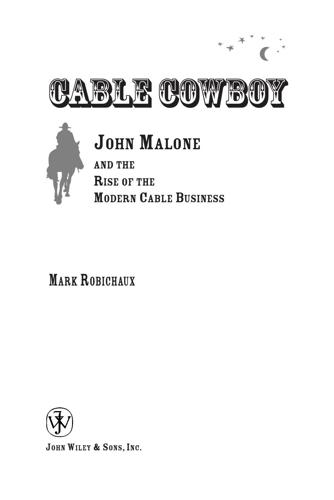
Cable Cowboy
by
Mark Robichaux
Published 19 Oct 2002
Madison Avenue started to take note and give cable networks proper attention. The cable industry’s ad revenues topped $1.1 billion in 1987, nearly triple just three years earlier. By then, Malone had made his first move into home shopping via television. In early 1986, out of nowhere he received a call from Irwin Jacobs, a corporate raider and financier who believed that the discount merchandiser he controlled, called COMB, had a future in TV. Malone knew nothing of Jacobs, except that he was a brash Wall Street dealmaker who had been accused of greenmail (i.e., looking for a payoff by threatening a takeover) more than once.
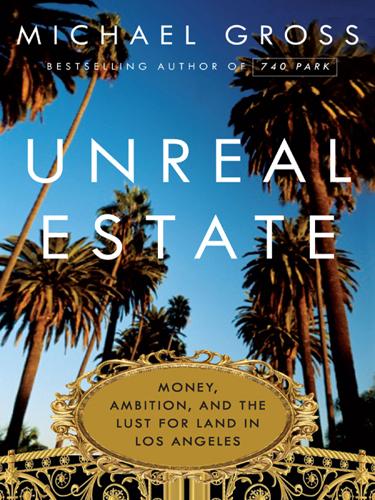
Unreal Estate: Money, Ambition, and the Lust for Land in Los Angeles
by
Michael Gross
Published 1 Nov 2011
With that, I said, ‘What I want to do is find a cure for cancer.’ ” Gabriele’s death spurred an interest in brain, nutrition, and biotechnology research, which became his philanthropic focus. Another heartache followed the same year, when their eldest son from Gabriele’s first marriage drowned in an accident at twenty-three. Though devastated, Murdock didn’t falter in business. Within a year, he’d beaten another corporate raider, Irwin Jacobs, and taken over a troubled 104-year-old real estate company called Castle & Cook, which owned almost the entire 90,000-acre Hawaiian island of Lanai, and Dole Food, the pineapple and banana company that had been born there. Dole also owned 60,000 acres on other Hawaiian islands, 6,600 acres in California, and plantations in Thailand and the Philippines, where most of its fruit was grown.

740 Park: The Story of the World's Richest Apartment Building
by
Michael Gross
Published 18 Dec 2007
Thomas, Barry Thomson, David Thorne, Ed Thorne, Francis Thorne, Julia Stimson Thorne, Landon Thorne, Peter Thorne, Cari Tio, Carlo Toresani, Jim Torpe, Bob Torre, Yvonne and Alberto Uribe, Diane van Amerongen, Hope van Beueren, Joan van Clefe, Anne van den Bergh, William vanden Heuvel, Anthony Gambrill Villa, Peter Villa, Elliott Vose, Carroll Wainwright, Anne Walton, Marshall Webb, David Weir, Catherine Whalen, Katharine Brewster Whipple, Joan Whiteman, Sue Wild, John Wilmerding, John Winslow, Barbara Swain Wittman, Cathy Yandell, Will Zeckendorf, William Zeckendorf Jr., Martin Zimet, Stanford and Eve Zimmerman, and Harvey Zimond. NOTES INTRODUCTION Steinberg wasn’t the only original greenmailer. In the 1980s, T. Boone Pickens Jr., Irwin Jacobs, and Carl Icahn were also credited with initiating the hardball tactic. The cooperative corporation owns the property, takes out a mortgage on the building, and pays the taxes, but the tenant-shareholders get the tax deductions for interest payments on the mortgage, again, proportional to the number of shares they hold.
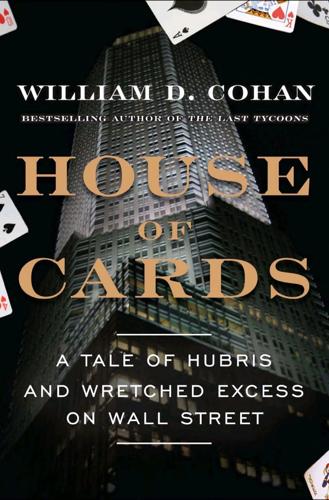
House of Cards: A Tale of Hubris and Wretched Excess on Wall Street
by
William D. Cohan
Published 15 Nov 2009
Leslie Wayne cited a number of instances where the firm appeared to have a conflict of interest—“for instance, acting as a market maker in the shares of one company at the same time it was waging a proxy battle against that company's management”—but plowed ahead anyway. She noted that the firm happily represented corporate raiders, such as Irwin Jacobs in his successful effort to snatch control of the moving company Bekins from the Belzberg family of Canada, another set of well-known raiders. Wayne also let a competitor take a potshot at the firm. “Bear Stearns has done an intelligent job of seeking segments that most people found to be too small, specialized or even vaguely repellent,” said George L.
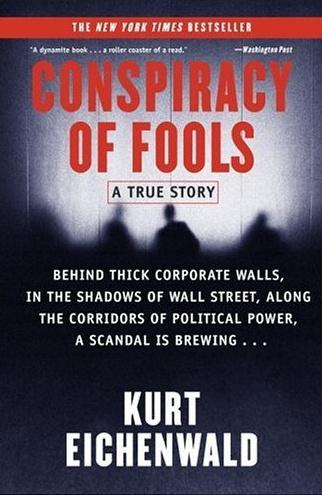
Conspiracy of Fools: A True Story
by
Kurt Eichenwald
Published 14 Mar 2005
Both had been snapping up smaller pipelines and were often competing bidders. Fighting over scraps made no sense when they both could achieve their shared goal through a single merger—with each other. Segnar had plenty of other justifications for pushing the deal, but many of those went unmentioned. Irwin Jacobs, the feared corporate raider, was loading up on InterNorth stock. If Segnar didn’t take control of his own destiny, Jacobs might do it for him. A major acquisition, like HNG, would load the company up with debt and make it far less attractive as a candidate for a hostile takeover. Intrigued, Lay asked some questions and said he would get his best people working on the idea.